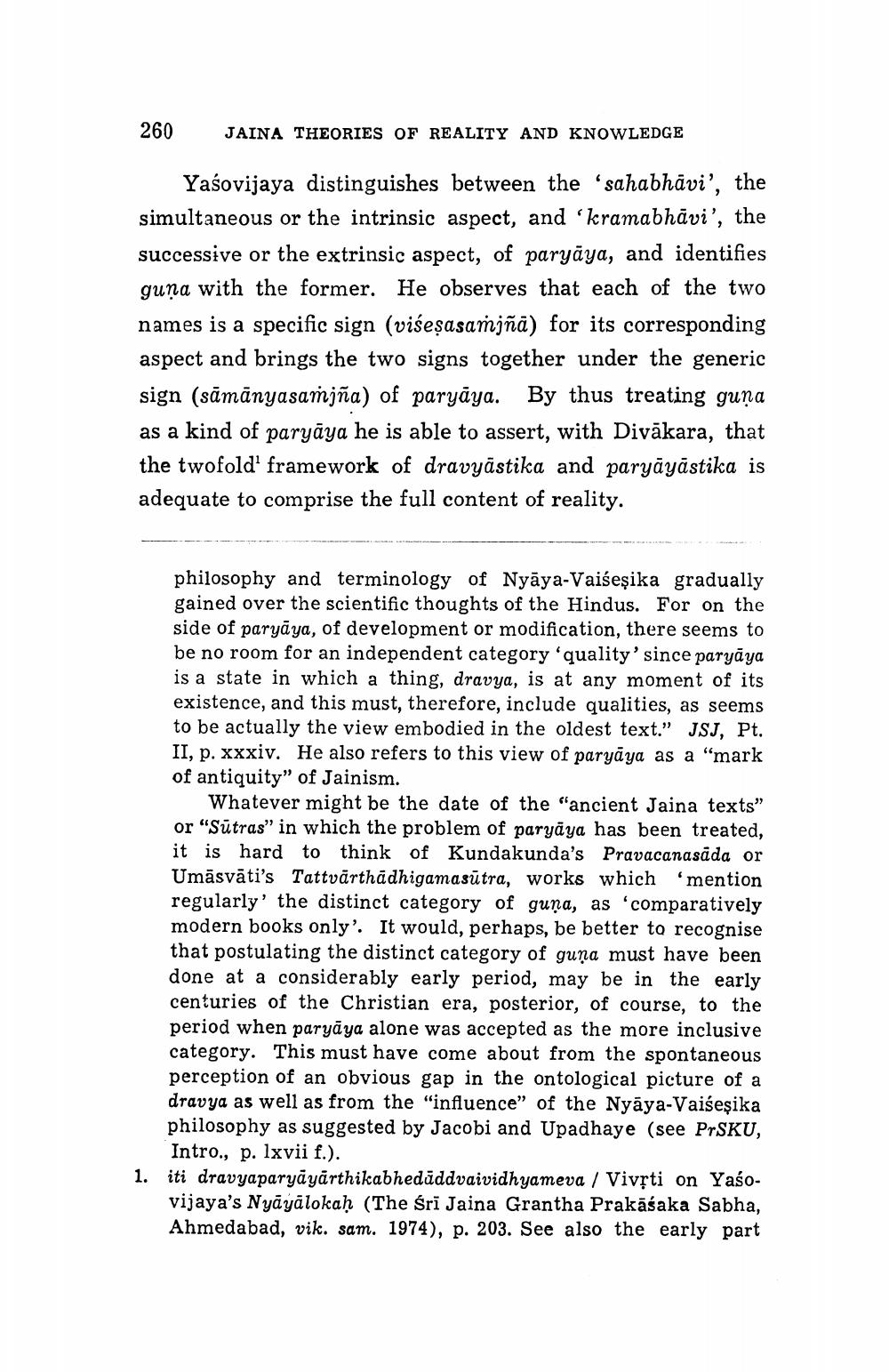________________
260
JAINA THEORIES OF REALITY AND KNOWLEDGE
Yaśovijaya distinguishes between the 'sahabhāvi', the simultaneous or the intrinsic aspect, and ‘kramabhāvi', the successive or the extrinsic aspect, of paryāya, and identifies guna with the former. He observes that each of the two names is a specific sign (višeşasamjñā) for its corresponding aspect and brings the two signs together under the generic sign (sāmānyasamiña) of paryāya. By thus treating guna as a kind of paryāya he is able to assert, with Divākara, that the twofold' framework of dravyästika and paryāyāstika is adequate to comprise the full content of reality.
philosophy and terminology of Nyāya-Vaiseșika gradually gained over the scientific thoughts of the Hindus. For on the side of paryāya, of development or modification, there seems to be no room for an independent category 'quality'since paryāya is a state in which a thing, dravya, is at any moment of its existence, and this must, therefore, include qualities, as seems to be actually the view embodied in the oldest text." JSJ, Pt. II, p. xxxiv. He also refers to this view of paryāya as a "mark of antiquity" of Jainism.
Whatever might be the date of the "ancient Jaina texts" or "Sūtras" in which the problem of paryaya has been treated, it is hard to think of Kundakunda's Pravacanasāda or Umāsvāti's Tattvärthādhigamasutra, works which mention regularly' the distinct category of guna, as comparatively modern books only'. It would, perhaps, be better to recognise that postulating the distinct category of guņa must have been done at a considerably early period, may be in the early centuries of the Christian era, posterior, of course, to the period when paryāya alone was accepted as the more inclusive category. This must have come about from the spontaneous perception of an obvious gap in the ontological picture of a dravya as well as from the "influence” of the Nyāya-Vaiśeşika philosophy as suggested by Jacobi and Upadhaye (see PrSKU,
Intro., p. lxvii f.). 1. iti dravyaparyāyārthikabhedāddvaividhyameva / Vivsti on Yaso
vijaya's Nyāyalokah (The śri Jaina Grantha Prakāśaka Sabha, Ahmedabad, vik. sam. 1974), p. 203. See also the early part




